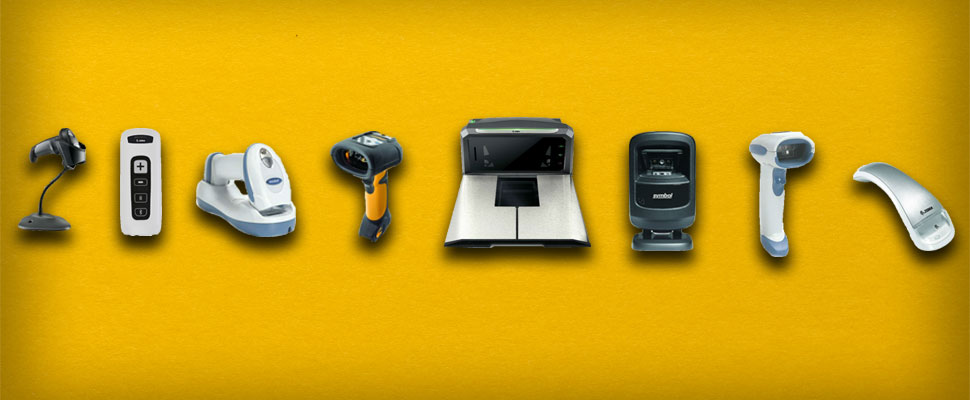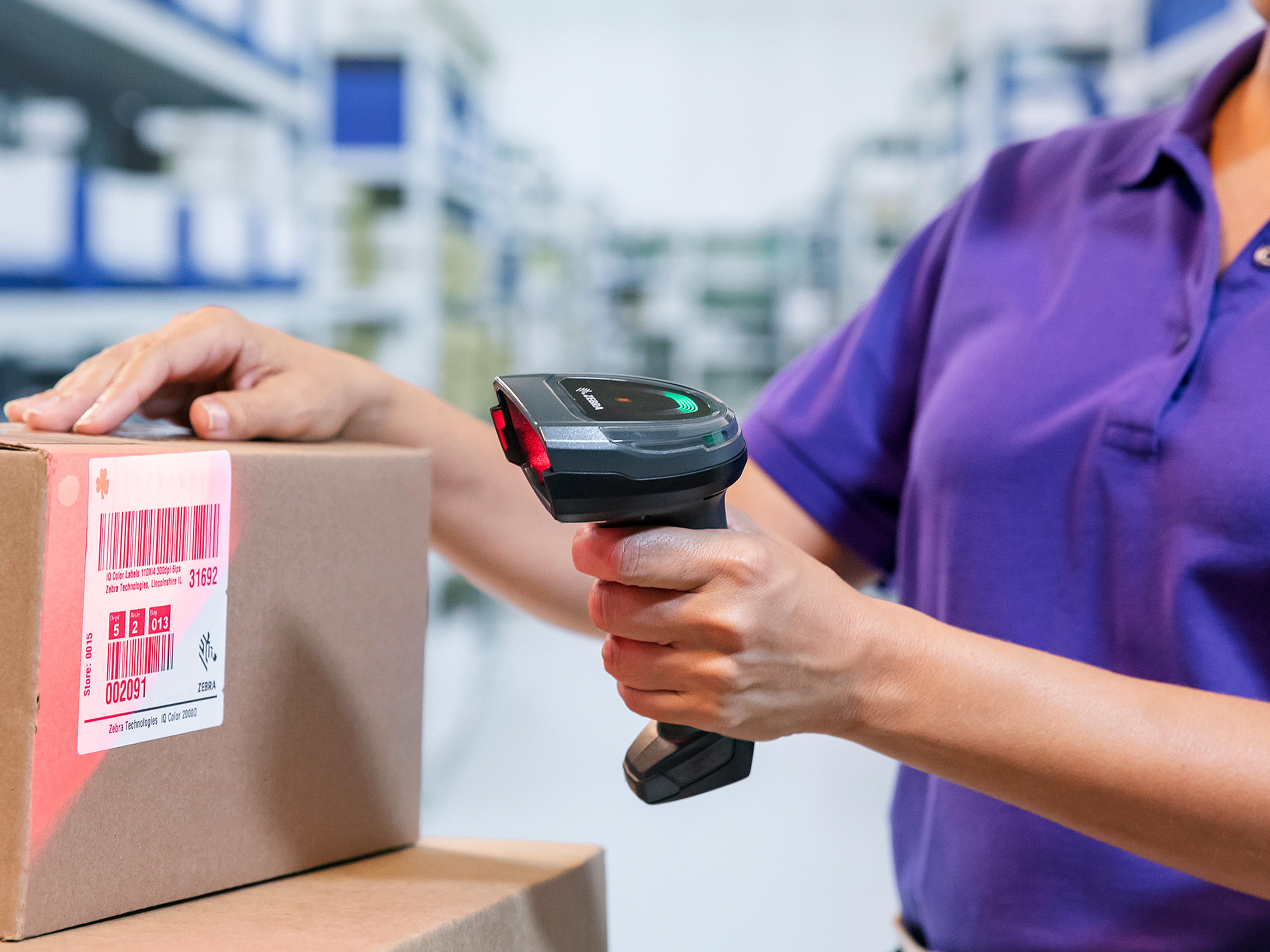Choosing the Right Barcode Scanner for Your Business Demands
Selecting the suitable barcode scanner for your service calls for a nuanced understanding of your details functional demands and ecological conditions. Aspects such as scanner kind, speed, and compatibility with existing systems play a crucial function in identifying the appropriate choice.
Recognizing Barcode Scanner Types
When it concerns selecting a barcode scanner, comprehending the various kinds readily available is crucial for meeting certain business needs. Barcode scanners can be classified into numerous types, each created for various applications and environments.
Portable scanners are one of the most common, providing portability and ease of usage, making them appropriate for retail and stock monitoring. They commonly attach through USB or Bluetooth, offering adaptability in operation. Fixed-mount scanners, on the other hand, are made for high-volume scanning applications, often discovered in production line or checkout counters. These scanners are installed in a fixed setting, permitting for rapid scanning of numerous items in succession.
An additional type is the mobile computer system, which incorporates scanning abilities with calculating power. These devices are suitable for area procedures or stockroom administration, enabling data collection and real-time supply monitoring. In addition, there are industrial scanners that are built to endure rough atmospheres, such as extreme temperature levels or exposure to dust and wetness.

Secret Functions to Think About
What important functions should businesses focus on when selecting a barcode scanner? Firstly, scanning rate is critical, as faster scanners enhance functional performance, especially in high-volume atmospheres. The scanner's capability to review different barcode styles is additionally crucial; ensure it sustains prominent kinds like QR codes, UPC, and Code 128 to accommodate varied supply things.
Toughness is one more key attribute, specifically for companies in rugged settings. Try to find versions that are constructed to withstand decreases, dirt, and wetness. Furthermore, take into consideration the connection choices readily available; whether you like USB, Bluetooth, or Wi-Fi, the ideal connectivity can improve assimilation with existing systems.

Evaluating Your Service Environment
To successfully pick a barcode scanner, businesses must analyze their certain operational atmosphere. This assessment consists of reviewing the physical design of the office, the nature of the products being checked, and the normal conditions under which scanning occurs. For example, a retail atmosphere may need handheld scanners that can quickly process purchases at the check out, while a storage facility setup could take advantage of ruggedized scanners designed to sustain harsher conditions.
In addition, take into consideration Read Full Report the volume of scanning needed. High-throughput settings might demand sophisticated scanning modern technologies, such as fixed-position scanners or mobile phones that can operate successfully in busy circumstances. The assimilation abilities with existing supply management systems additionally play an essential role; make sure the chosen scanner can flawlessly attach with software platforms in operation.
Additionally, analyze the capacity for development and scalability. A scanner that fulfills current needs could not suffice as business expands. By thoroughly assessing these aspects, companies can select a barcode scanner that not just fulfills prompt requirements yet likewise sustains long-lasting operational performance and flexibility. This tactical technique eventually adds to smoother procedures and improved productivity.
Budgeting for Your Scanner
Having actually assessed the operational atmosphere and recognized the particular demands for a barcode scanner, the next action entails careful budgeting to guarantee a smart financial investment. Developing a budget plan begins with establishing the general costs connected with the scanner, consisting of initial purchase rate, operational expenditures, and possible upkeep fees.
When choosing a barcode scanner, think about the series of offered alternatives, from handheld devices to fixed-position scanners, as prices can differ dramatically. It is vital to stabilize cost with functionality; selecting a more budget-friendly version might bring about raised functional ineffectiveness if it does not satisfy your organization needs.
In enhancement to the hardware, consider prices associated with software, training, and prospective upgrades. While it could be alluring to lessen ahead of time expense, buying a quality scanner that straightens with your operational needs can yield long-term savings with boosted efficiency and minimized downtime.
Last but not least, take into consideration the complete price of possession, which encompasses the scanner's life expectancy and potential resale value. By carefully planning your budget plan, you can make certain that your financial investment in a barcode scanner will enhance your functional performance and monetary performance.
Integration With Existing Solution
Incorporating a helpful resources barcode scanner with your existing systems is important for maximizing its performance and making certain smooth procedures. barcodes scanners. A well-integrated scanner improves process efficiency, lowers mistakes, and accelerates information processing. When selecting a barcode scanner, consider compatibility with your present software program and equipment facilities, including your inventory management systems, point-of-sale (POS) systems, and enterprise resource preparation (ERP) remedies
Examine whether the scanner uses conventional methods such as USB, Bluetooth, or Wi-Fi, which can promote easy combination. Additionally, assess whether the scanner's software application supplies APIs or SDKs that permit customization and assimilation with exclusive systems. This is especially vital for businesses with one-of-a-kind functional requirements.
Additionally, think about the scalability of the scanning option. As your organization grows, your systems ought to have the ability to helpful resources suit additional scanners and manage enhanced data quantities without considerable reconfiguration. Inevitably, buying a barcode scanner that flawlessly incorporates with your existing systems will generate lasting advantages, enhancing precision, efficiency, and overall performance within your operations. Make the effort to extensively evaluate your assimilation requires prior to making a purchase decision.

Conclusion
Finally, selecting a suitable barcode scanner requires a comprehensive assessment of numerous elements, including scanner types, crucial functions, and the certain service setting. Correct budgeting for both purchase and operational prices is necessary, along with making sure compatibility with existing systems. By meticulously considering these aspects, organizations can enhance efficiency and efficiency, ultimately causing enhanced functional results. The ideal barcode scanner functions as an essential tool in simplifying procedures and facilitating effective inventory management.